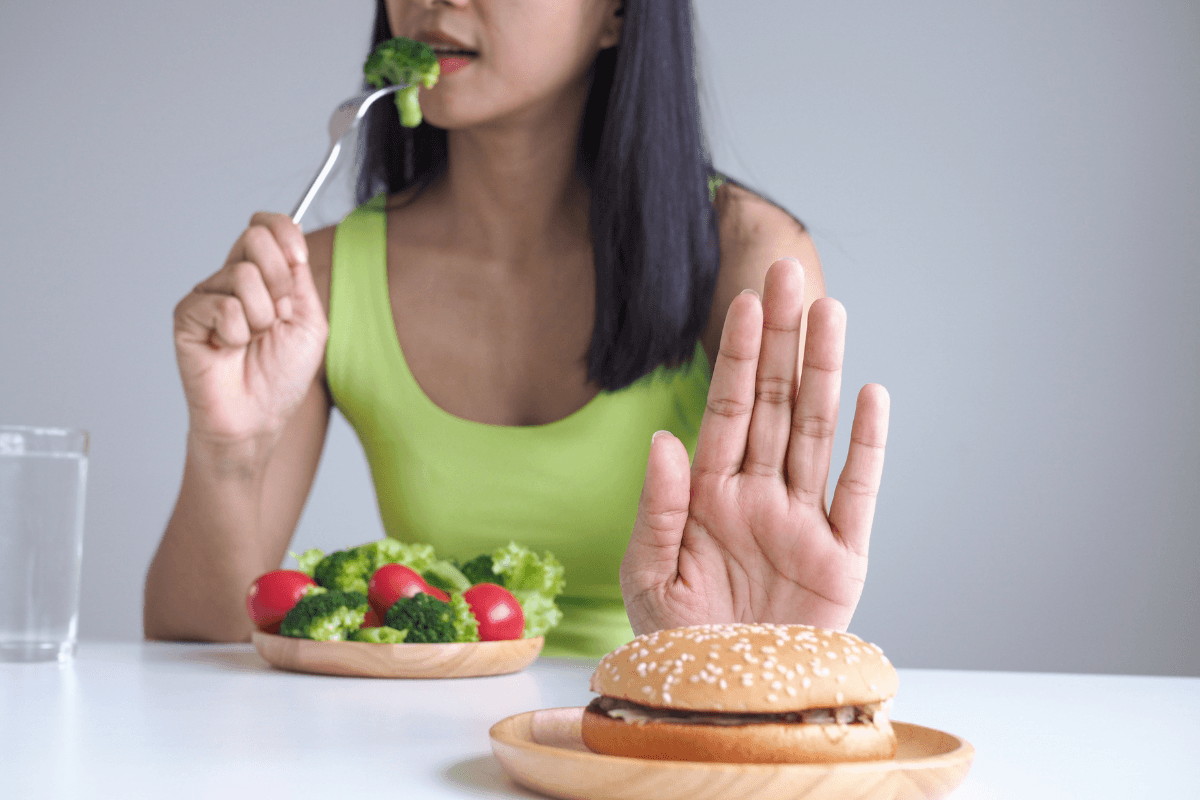Summary: When taking Trulicity (dulaglutide) for type 2 diabetes, it’s crucial to know foods to avoid with Trulicity. High-sugar items, processed carbs, unhealthy fats, and salty foods can diminish the medication’s effectiveness and increase side effects, impacting your overall health and diabetes management.
Trulicity (dulaglutide) is a medication prescribed to help manage type 2 diabetes. It works by imitating the action of the hormone GLP-1, which helps to reduce blood sugar levels after eating. However, paying attention to your diet is essential for Trulicity to be most effective and minimize potential side effects. Certain foods can interfere with the medication’s effectiveness and cause unwanted side effects. In this article, we will explore different varieties of foods to avoid with Trulicity.
High-Sugar Foods and Drinks
First, foods with high sugar and drinks should be avoided since they can induce a sudden surge in your blood sugar levels, counteracting the benefits of Trulicity. Such foods include sodas, candy, cakes, pastries, and sugary cereals. A better choice would be to choose natural sweeteners like stevia and fruits in moderation for a healthier sweet fix.
Processed and Refined Carbohydrates
Next, processed and refined carbohydrates can quickly break down into sugar in your body, leading to increased blood sugar levels. Foods like white bread, white rice, pasta, and many packaged snacks fall into this category. Whole grains, including brown rice, quinoa, and whole wheat bread, provide more fiber and nutrients, which help manage blood sugar levels more effectively.
High-Fat Foods
High-fat foods are also best avoided because consuming large amounts of unhealthy fats can contribute to insulin resistance, making it harder for your body to use Trulicity effectively. Fried foods, fast food, fatty cuts of meat, and full-fat dairy products are common examples. Instead, lean proteins like chicken, turkey, fish, nuts, seeds, and low-fat or non-fat dairy options are better choices.
High-Sodium Foods
High-sodium foods should also be limited, as high sodium intake can increase blood pressure and exacerbate diabetes-related complications. This includes canned soups, processed meats, salty snacks, and fast food. Opting for fresh vegetables, lean meats, and home-cooked meals with herbs and spices for flavor instead of salt is a healthier approach.
Alcoholic Beverages
Alcohol can cause unpredictable changes in blood sugar levels, leading to hypoglycemia (low blood sugar) or hyperglycemia (high blood sugar). Beers, wines, and cocktails should be consumed in moderation and always with food if you choose to drink. Lower-carb options like dry wines and spirits mixed with non-sugary mixers are preferable.
Fruit Juices and Smoothies
Lastly, despite seeming healthy, fruit juices and smoothies can be very high in natural sugars, leading to blood sugar spikes. Store-bought fruit juices, smoothie bars, and specific homemade blends should be consumed cautiously. Eating whole fruits instead is a better option, as they contain fiber that helps regulate blood sugar levels.
Awareness of Trulicity’s Side Effects
While managing your diet is crucial, it’s also important to be aware of the adverse reactions of observing Trulicity treatment. The most common include nausea, diarrhea, vomiting, abdominal pain, and decreased appetite. They are mild and can be managed easily.
What are the worst side effects of Trulicity? Trulicity’s most intense adverse effects, though rare, include severe stomach pain, serious allergic reactions, pancreatitis, changes in vision, kidney problems, and thyroid tumors. If you encounter any of these severe side effects, contact your healthcare professional immediately.
Maintaining a Diabetes-Friendly Diet
To maintain a diabetes-friendly diet while on Trulicity, eat meals and snacks regularly to keep your blood sugar levels steady. Aim for a mix of protein, healthy fats, and fiber-rich carbohydrates at each meal, stay hydrated by drinking plenty of water, and monitor your blood sugar levels to understand better how different foods influence you.
Conclusion
In conclusion, managing your diet while taking Trulicity is essential for optimizing the medication’s benefits and maintaining overall health. Steering clear of certain foods and making healthier choices can help you manage your blood sugar levels and improve diabetes management. For instance, it’s important to know which foods to avoid with Trulicity to minimize side effects and maximize effectiveness. Consult your healthcare physician or a qualified nutritionist for specific guidance before making significant changes to your diet. Minor dietary alterations can significantly affect your diabetes journey, so stay informed, stay healthy, and take control of your well-being!


